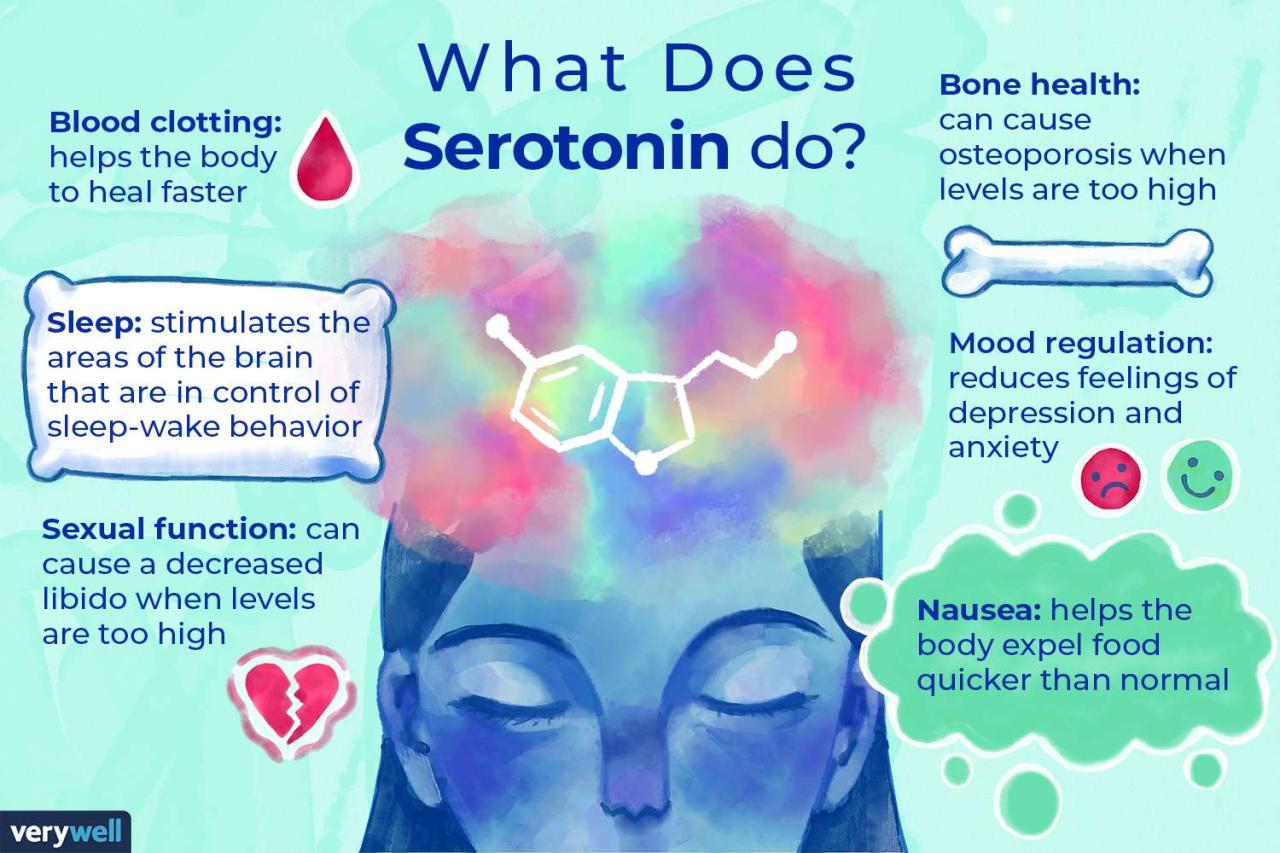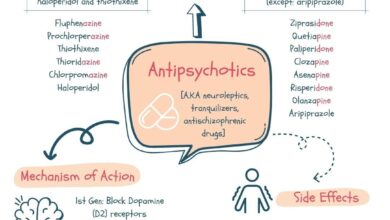
Optimizing Tryptophan Conversion to Battle Depression
Optimizing tryptophan conversion to battle depression is a fascinating area of research that explores the intricate connection between our diet, lifestyle, and mental well-being. Tryptophan, an essential amino acid, plays a crucial role in the production of serotonin, a neurotransmitter that regulates mood, sleep, appetite, and cognitive function.
Serotonin deficiency has been strongly linked to depression, a prevalent mental health condition affecting millions worldwide.
Understanding how tryptophan is converted into serotonin, and identifying factors that can influence this process, can empower us to take proactive steps towards improving our mental health. This article delves into the science behind tryptophan conversion, explores strategies for optimizing this process, and sheds light on emerging research and potential therapies that may revolutionize our approach to depression management.
Strategies for Optimizing Tryptophan Conversion

Optimizing tryptophan conversion is crucial for enhancing serotonin production, which plays a vital role in mood regulation and overall well-being. By implementing strategic lifestyle changes, you can increase your body’s ability to utilize tryptophan effectively and potentially combat depression symptoms.
Dietary Strategies for Enhancing Tryptophan Conversion
A well-balanced diet rich in tryptophan-containing foods can significantly contribute to optimizing tryptophan conversion. Here are some key dietary strategies:
- Prioritize protein-rich foods:Incorporate lean meats, poultry, fish, eggs, dairy products, and legumes into your daily meals. These foods are excellent sources of tryptophan.
- Consume complex carbohydrates:Opt for whole grains, fruits, and vegetables, as they provide a slow and steady release of glucose, which can enhance tryptophan uptake into the brain.
- Limit processed foods and sugary drinks:These foods can spike blood sugar levels, hindering tryptophan transport to the brain.
- Stay hydrated:Drinking plenty of water throughout the day is essential for optimal nutrient absorption and brain function.
Supplements to Enhance Tryptophan Conversion
Certain supplements can assist in promoting tryptophan conversion and serotonin production.
- Vitamin B6:Plays a crucial role as a coenzyme in tryptophan metabolism, facilitating its conversion to serotonin.
- Magnesium:Essential for neurotransmitter synthesis and can enhance serotonin production.
- 5-HTP:A precursor to serotonin, 5-HTP can bypass the initial step of tryptophan conversion, potentially leading to increased serotonin levels.
- Omega-3 fatty acids:Found in fatty fish, flaxseeds, and walnuts, omega-3 fatty acids can improve brain function and support serotonin production.
Improving Gut Health for Enhanced Tryptophan Absorption
The gut microbiome plays a significant role in tryptophan absorption and conversion. Maintaining a healthy gut can positively impact serotonin production.
Optimizing tryptophan conversion can be a powerful tool in the fight against depression, but it’s not a one-size-fits-all solution. It’s important to remember that leadership skills, especially in the modern workplace, are crucial for fostering a supportive and positive environment.
To learn more about developing essential leadership skills like emotional intelligence and strategic thinking, check out this insightful article: 10 most important leadership skills for the 21st century workplace and how to develop them. Ultimately, a combination of proactive self-care strategies, including dietary adjustments, and strong leadership within a company can create a more positive and healthy work environment, potentially contributing to improved mental well-being.
- Consume probiotics:Probiotics, found in fermented foods like yogurt and kimchi, can help restore a healthy gut microbiome.
- Increase fiber intake:Fiber promotes the growth of beneficial gut bacteria, which are essential for optimal tryptophan absorption.
- Limit processed foods and sugar:These foods can disrupt the gut microbiome, negatively impacting tryptophan absorption.
- Consider prebiotics:Prebiotics, such as inulin and fructans, act as food for beneficial gut bacteria, promoting their growth.
Emerging Research and Potential Therapies

The link between tryptophan metabolism and depression is a rapidly evolving area of research, with scientists uncovering increasingly intricate connections and exploring novel therapeutic avenues. This research offers promising insights into the potential for targeting tryptophan conversion pathways to develop more effective and personalized treatments for depression.
Potential Therapeutic Interventions, Optimizing tryptophan conversion to battle depression
Emerging research highlights the potential of targeting tryptophan conversion pathways to develop novel therapies for depression. This approach offers a distinct advantage over traditional antidepressants by directly addressing the biochemical imbalances associated with the disorder.
- Tryptophan Supplementation:Increasing tryptophan levels in the brain can potentially enhance serotonin synthesis, leading to improved mood. However, research on the efficacy of tryptophan supplementation in depression is still ongoing, and further studies are needed to determine optimal dosages and potential side effects.
Optimizing tryptophan conversion is a promising strategy for combating depression, but it’s not a one-size-fits-all solution. Just like the mobile phone market, where Android loses market share to iOS but still dominates overall , different approaches work for different individuals.
Finding the right combination of dietary changes, exercise, and potentially even supplements is key to maximizing tryptophan’s potential for mood enhancement.
- Enhancing Kynurenine Pathway Activity:While the kynurenine pathway is associated with depression, some researchers suggest that selectively enhancing certain enzyme activities within this pathway could potentially have therapeutic benefits. For instance, boosting the activity of kynurenine 3-monooxygenase (KMO) could lead to increased production of quinolinic acid, a neuroprotective compound.
Optimizing tryptophan conversion to serotonin is a powerful tool in the fight against depression. It’s all about supporting the body’s natural processes, and sometimes that means getting creative. One way to do that is to expose yourself to nature, which can be a great way to boost your mood.
For some inspiration, check out 12 engaging earth day videos for kids of all ages. These videos can help you connect with the natural world and remind you of the simple joys of being alive, which can be a great way to combat negative thoughts and feelings.
Remember, taking care of your mental health is an ongoing process, and incorporating nature into your life can be a powerful part of that journey.
However, further research is needed to understand the complex interplay of different kynurenine pathway metabolites and their impact on mood.
- Inhibiting IDO Activity:Inhibiting indoleamine 2,3-dioxygenase (IDO) activity could potentially increase tryptophan availability for serotonin synthesis. This approach has shown promising results in preclinical studies, but clinical trials are needed to validate its effectiveness in humans. However, concerns remain regarding potential side effects of IDO inhibition, such as immune suppression.
Comparison with Traditional Antidepressants
| Characteristic | Traditional Antidepressants | Tryptophan Metabolism-Focused Therapies |
|---|---|---|
| Mechanism of Action | Primarily target neurotransmitter reuptake or receptor activity | Directly influence tryptophan conversion pathways and serotonin synthesis |
| Time to Effect | Typically take several weeks to achieve full therapeutic effect | Potential for faster onset of action, but further research is needed |
| Side Effects | Common side effects include nausea, weight gain, sexual dysfunction | Potential side effects are still under investigation, but may include gastrointestinal disturbances or immune modulation |
| Personalization | Limited ability to personalize treatment based on individual biochemistry | Potential for greater personalization by tailoring interventions to specific metabolic profiles |
Lifestyle Modifications for Improved Mood: Optimizing Tryptophan Conversion To Battle Depression
Beyond dietary and supplemental strategies, incorporating lifestyle changes can significantly enhance serotonin production and contribute to improved mood. These modifications focus on optimizing sleep, managing stress, and engaging in regular physical activity.
Strategies for Optimizing Sleep
Adequate sleep is crucial for serotonin synthesis and overall mood regulation. Sleep deprivation can disrupt the delicate balance of neurotransmitters, leading to increased irritability, anxiety, and depression.
- Establish a Regular Sleep Schedule:Going to bed and waking up at consistent times, even on weekends, helps regulate your body’s natural sleep-wake cycle, promoting better sleep quality.
- Create a Relaxing Bedtime Routine:Engaging in calming activities like taking a warm bath, reading, or listening to soothing music before bed can signal to your body that it’s time to wind down.
- Optimize Your Sleep Environment:Ensure your bedroom is dark, quiet, and cool. A comfortable mattress and pillows are essential for a restful sleep.
- Limit Screen Time Before Bed:The blue light emitted from electronic devices can interfere with melatonin production, a hormone that regulates sleep.
Managing Stress
Chronic stress can deplete serotonin levels, contributing to mood disorders. Effective stress management techniques are vital for maintaining emotional well-being.
- Mindfulness and Meditation:Practicing mindfulness techniques, such as meditation or deep breathing exercises, can help reduce stress and promote relaxation.
- Yoga and Tai Chi:These gentle forms of exercise combine physical movement with mindfulness, promoting stress reduction and emotional balance.
- Social Support:Connecting with loved ones, participating in social activities, and seeking professional help when needed can provide emotional support and reduce stress levels.
Benefits of Regular Exercise
Regular physical activity is a powerful tool for boosting serotonin production and improving mood. Exercise triggers the release of endorphins, natural mood elevators, and promotes overall well-being.
- Increased Serotonin Levels:Exercise has been shown to increase serotonin levels in the brain, contributing to improved mood and reduced symptoms of depression.
- Improved Sleep Quality:Regular exercise can promote better sleep, further enhancing serotonin production and mood regulation.
- Stress Reduction:Exercise serves as an effective stress reliever, helping to reduce cortisol levels and promote relaxation.
Final Thoughts
By understanding the intricate interplay between tryptophan, serotonin, and depression, we can make informed choices about our diet, lifestyle, and potentially explore therapeutic interventions that support optimal tryptophan conversion. This holistic approach empowers us to take control of our mental well-being and strive for a brighter, more balanced life.
While further research is ongoing, the knowledge we gain from studying tryptophan metabolism offers hope for a future where depression is effectively managed and prevented.






